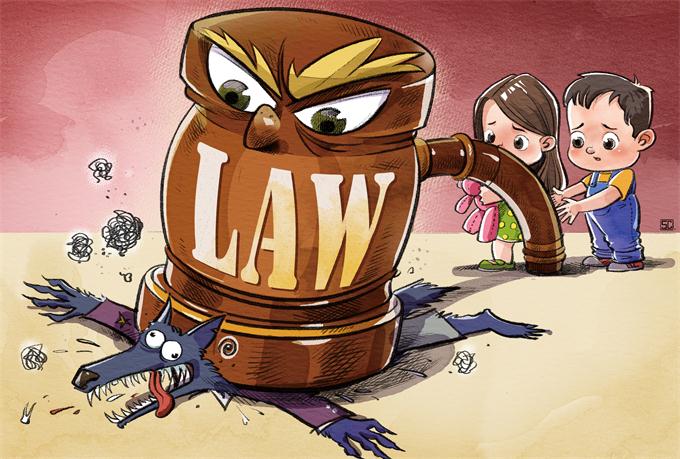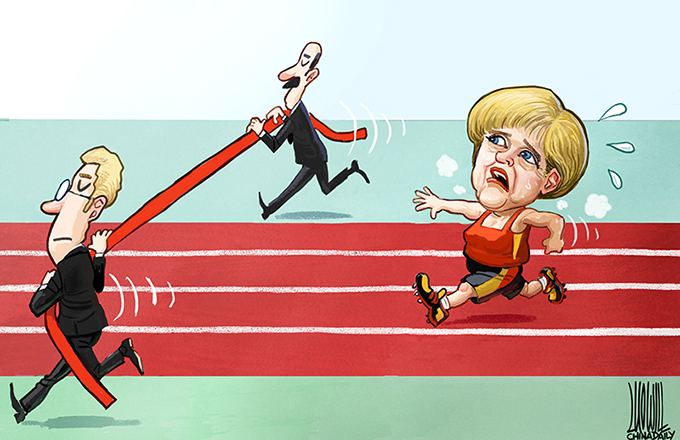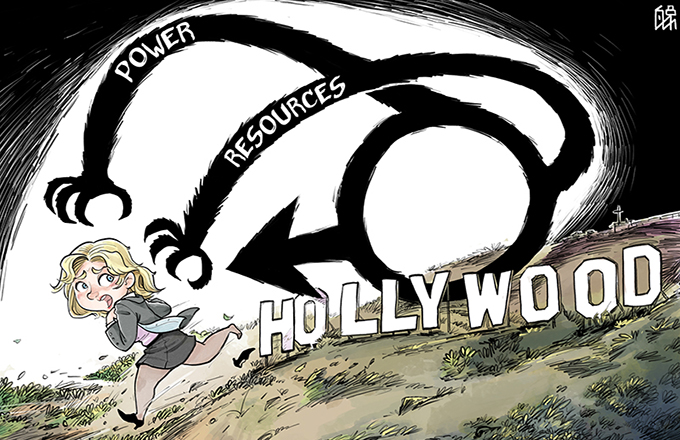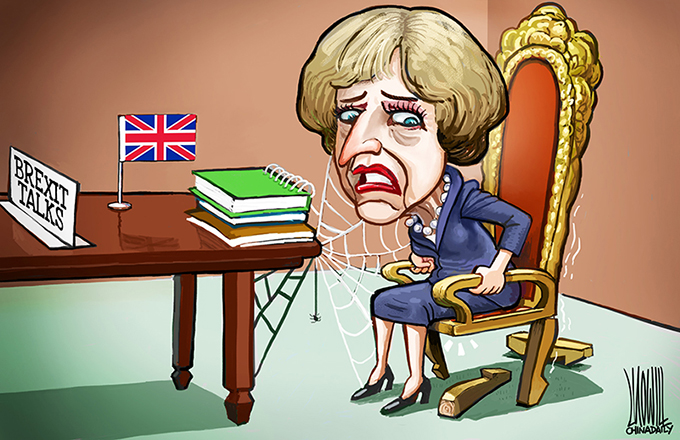Think twice about imposing property tax
Huang Qifan, vice-chairman of the economic and finance committee of the National People's Congress, the country's top legislature, said at a recent forum that the imposition of residential property tax is imperative, listing four major advantages of the move. Before that, in November 2013, the Third Plenum of the 18th Communist Party of China Central Committee had said legislation on real estate tax will be accelerated, and the tax reform will be promoted in time.
Internationally, house property tax refers to levying tax on all houses based on value appraisals. Only when a residential property tax is imposed on all houses can such a move be considered fair, and benefit the local governments and the grassroots taxation system. Global experiences show the local governments of a country that levy a residential property tax also enjoy sufficient transfer of payment from higher levels of governments or the central government.
But in China, such transfers of payments are limited, which means income from house property tax will not be enough to meet the local governments' expenditure.
Besides, one of the difficulties in levying a property tax on individuals and households is that it is imposed on a natural person's real estate asset that doesn't necessarily produce direct cash flow. And since levying individual income tax on natural persons is difficult in China, imposing tax on an individual's real estate asset, which doesn't produce cash flow, will be equally, if not more, difficult.
To successfully levy such a tax on individuals, the authorities should first win the support of the majority of the people.
Individual property tax programs were piloted in Chongqing and Shanghai on Jan 28, 2011. But the continuously rising housing prices in these cities have prevented the people from being convinced that a property tax would effectively check the trend to a large extent.
Whether property tax can curb rising housing prices depends on the form and structure of the real estate market. If the real estate market is a seller's market, the property tax will be paid by the homebuyers. And it will be difficult for homebuyers to transfer the property tax which they have to pay every year by deducting it from the total housing price.
Under such circumstances, a more likely result would be homebuyers paying for their property according to prevailing prices and shouldering the property tax burden in the future.
Some people assume imposing a property tax could accelerate the development of house rental market. But since even homeowners who rent out their houses have to pay the property tax, they are likely to transfer the cost to the tenants. In that case, the property tax can hardly help improve people's livelihoods.
In addition, when the real estate market is sluggish, the property tax might probably become the last straw that breaks the market's back. A rapid slump in the real estate market could lead to a financial crisis, even fiscal crisis, undermining social stability, which none of us wants to see.
Accelerating legislation on property tax and promoting tax reform in time are necessary. But some people suppose China's property tax system design should follow the model of developed countries, which is wrong considering China's special land ownership system. In China, urban land belongs to the State and rural land to collectives. Given the public ownership of land, the local governments can generate income from the transfer of land-use rights. This system is different from those followed by most other countries.
Moreover, the house property taxation system should also take the paying capacity of households into consideration. Because of the high housing prices and comparatively low individual incomes, a large number of people cannot afford to pay a high residential property tax even if they are willing to do so. And under what rules will the property tax be imposed on welfare-oriented houses that were sold at very low prices?
Any discrepancy here could undermine the fairness of levying the property tax.
Therefore, while enacting the property tax, complicated problems should be fully discussed in order to avoid the negative social effects of imposing such a tax in a hurry.
The author is a research fellow at the National Academy of Economic Strategy, Chinese Academy of Social Sciences.
=





















